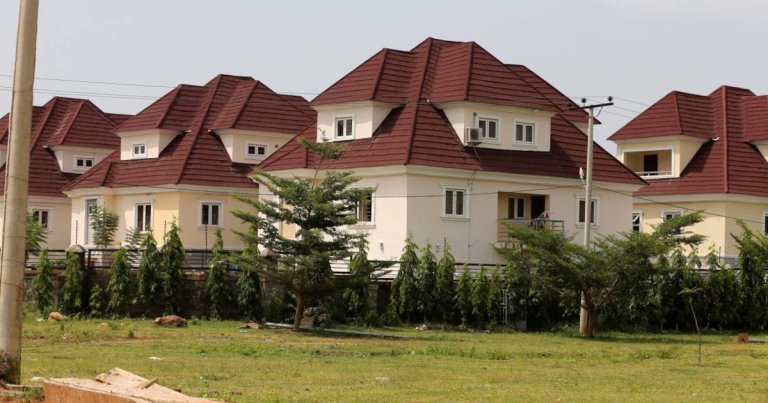Housing for All is a slogan often used by politicians to woo voters during electioneering. When they romp into power, all the promises escape like air through high windows leaving squalor as a permanent reminder of failed dreams. Human needs may be insatiable but food, water and shelter make life more meaningful. When a man has a roof over his head, fifty percent of his problems are solved. Housing, therefore, deserves more attention than it is getting from the government.
About N21 trillion is what Nigeria needs to sort out its deficit of over 30 million housing units. Statistics show that about 62 million people are grappling with a housing deficit in a country with a projected population of about 200 million. This sad development requires more than rhetoric. One way to show commitment to closing this deficit is by sequestering Housing from the Federal Ministry of Works.
President Muhammadu Buhari, apparently in his bid to part from previous administrations, lumped three powerful sectors – Power, Works and Housing together in 2015. Former Lagos State governor, Babatunde Fashola was tasked with the burden of carrying what seemed like excess luggage but was overlooked because of his antecedents. It soon dawned on Buhari that the idea was going to dent the records of his minister. Power was later taken off Fashola’s shoulders. It is that same formula that should be applied once again. Housing deserves more recognition especially at a time that the rural areas have been overwhelmed by insecurity. The import is that more people are leaving for urban locations. With the looming population explosion, infra- structural needs will be affected. The most visible challenge is housing. And the picture is worrisome.
From a deficit of seven million housing units in1991, the figures moved to 12 million in 2007. It got worse in 2010, with 14 million and worsened to 28 million in 2020. The story becomes more pathetic when you look at budgetary attention. In the 2021 budget, the ministry of Works and Housing got N515 billion as allocation. Of the amount, Works took N441.1 billion. By the time you remove that huge chunk, almost nothing of value is left. The 2023 budget came with more woes.
Allocation dropped to N300, N385 and N582.183 billion. Housing was given a paltry N45 billion with the strict condition that it must be used to complete ongoing projects across the nation. This does not speak well of the government. In 2019, the Central Bank of Nige- ria (CBN) revealed that only 10 percent of Nigerians who desire to own homes can afford it. In the United Kingdom, the figure is 78 per- cent. About 72 percent own homes in the Unit- ed States. Government cannot do it alone but must be involved in the entire process of making housing affordable. Executive Secretary of Association of Housing Corporations of Nigeria, Toye Eniola, said that in the last four years, concentration has been on the construction and repair of roads, not the provision of houses. Even government intervention in the housing sec- tor has not solved much.
As the regulator, there seems to be undue rivalry with the private sector. It is difficult to explain why a one – bed- room apartment in a government estate will go for as high as between N5 and N7 million. Instead of competition, the government should partner with estate surveyors and valuers to reduce the huge housing deficit. Property developers should be granted loans and tax waivers to buy building materials, since cement and sand produced locally, are not all there is to construction.
With the advantage of land ownership and power to issue title deeds, the government is in a better position to build low cost housing units. The private sector needs support in land acquisition and provision of infrastructure like water, power and road. Inflation affects every bit of the housing industry. It is the only government that can fight inflation. If the economy is in free fall, the cost of building materials will certainly go beyond the reach of potential home owners. With agencies like the National Housing Authority (NHA), Federal Mortgage Bank of Nigeria (FMBN) and Family Homes Fund Limited (FHFL) housing should become a more serious business rather than an appendage. The time is right for an independent Federal Minis- try of Housing with a proessional as minister. The Federal Government must look beyond refugee camps in the provision of housing needs.

































